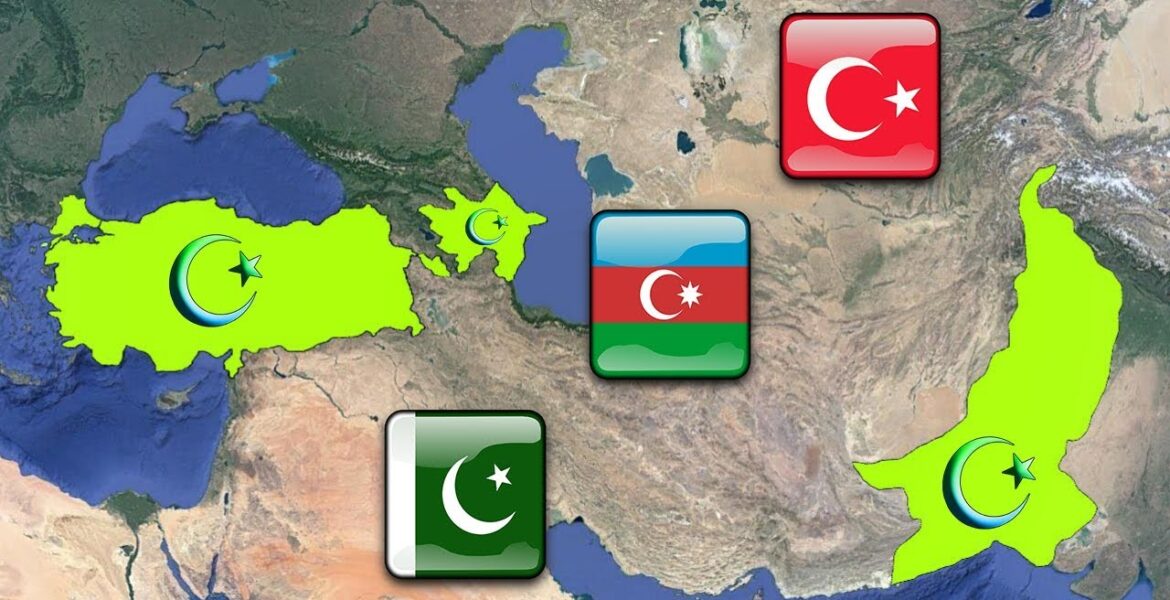Pakistan seems to support Turkey, but one must know what it is asking for in Cyprus and the Aegean – especially since it is thousands of kilometers away and is demanding the rights of Kashmir.
Recently, apart from illegal immigration which is by far the most serious threat to not only Greece, but to the whole of Hellenism, two relatively new and but unknown issues concern the Greeks.
One is the statements of former U.S. diplomat Nicholas Burns, who served in the highest levels of the U.S. State Department but also as an ambassador to Athens, where, according to Greek diplomats, he left the best impression after serving his country.
Burns, answering “if Greece can rely on the U.S. at a critical moment in the confrontation with Turkey" replied to journalist Athanasios Ellis, saying:
“I’m sorry to say it, but if Greece needs U.S. support in an incident with Turkey, I don’t think you will get it from President Trump.”
Speaking at the Delphi Forum, which was held in Washington, Burns stressed that he cannot imagine a hypothetical scenario where "Greece will be the aggressor.”
The second issue is the presence of the Navy and Air Force in the Mediterranean and the Aegean, and the clear statement by Pakistani Prime Minister Imran Khan, who said that “Turkey has supported Pakistan’s position on the Kashmir issue, and Pakistan supported Turkey in the Cyprus problem.”

As can be seen, the two issues are interrelated. That is why we will look back at Turkey’s “Operation Barbarism” – and not peace – in Cyprus, and the international situation on the first day of the invasion.
Pakistani Prime Minister Zulfikar Ali Bhutto in a message to his Turkish counterpart Bülent Ecevit said of the operation: “Pakistan strongly supports the peace operation launched by Turkey to stop the breach.”
The message also stated that the Pakistani people and government have always been feeding brotherly sentiments about the Turks, and that at this difficult time all Pakistanis are on the side of Turkey unconditionally.
Syrian President Hafez Assad, in turn, said in a statement about the operation that he supports the Turkish government’s attitude and shows understanding.
The Moscow Radio also broadcast live: “The Turks came to Cyprus in the morning. Turkey […] made use of its most natural right, as a last resort, and landed on the Island.”
Tirana Radio broadcast live that the Albanian state and nation, like all the nations of the world, support Turkey on the Cyprus issue and have a very positive view of the invasion, adding that Albania is on the side of the brotherly state of Turkey.
On the second day of operations, the reactions were as follows:
Bhutto said: “I am ready to go to war and fight shoulder to shoulder with Turkish soldiers […] we will not be left with arms crossed in the problems that Turkey is facing it.”
On the same day, Libya’s ambassador to Ankara’s embassy, Suleyman Atayaka, who promised to supply oil to Turkey, went to the foreign ministry and held some talks.
A group of Pakistanis residing in Ankara staged a demonstration for the rights of Turkish Cypriots, stating that they support their Turkish brothers’ operation in Cyprus. The Pakistanis held placards with the slogans written in Turkish, Urdu and English:
“We stand by the Turkish nation”, “Our blood for the Turkish nation”, “Pakistan and Turkey are brothers" and “The Pakistani nation is next to the Turkish nation.”
Meanwhile the foreign press covered the invasion extensively.
In a major article in the Kuwait Times newspaper, the author wrote that Turkey’s invasion is not an attack, and that this is absolutely fair, as there were no other ways left to protect the rights of Turkish Cypriots. He also wrote that Kuwait and the other Arab countries support Turkey not only because it is a Muslim country, but also because the law is with it.
Immediately after the sinking of the Kocatepe warship on July 21, 1974, Pakistan sent a military field clinic to Turkey, as well as Iran, which also sent cargo full of medical supplies.
The president of the Libyan Revolutionary Council telephoned the Turkish envoy in Tripoli and assured him that he was ready to send spare parts and any other assistance to Turkey. After that, Libya did indeed supply the necessary supplies.
These were some of the reactions and discussions for the following reasons:
First, to understand how important it is to have on your side international public opinion.
Second, to understand Turkey’s current situation in the Eastern Mediterranean – Cyprus, as opposed to 1974, and to interpret its move to bring Pakistan into our neighborhood.
It has therefore brought Pakistan into our neighborhood in response to the trilateral relations of Greece and Cyprus with Egypt, and to show that it has an active ally in the region and thus make it an “international” issue in its illegal and irrational demands to infringe on Greek and Cypriot waters.
In addition to the strategy, I call on supporters of open border policies to consider how much harm they have done to their homeland by bringing permanent residents to Greece for decades who openly support the invasion of Cyprus with slogans such as “We are on the side of the Turkish nation”, “Our blood for the Turkish nation”, “Pakistan and Turkey are brothers”, “The Pakistani nation is next to the Turkish nation.”
And don’t tell me that these are old issues, because there are continuous statements by the Prime Minister of Pakistan in support of Turkey, even at a time when Pakistani planes were violating Greek airspace and Pakistani ships were supporting Turkey in the East Mediterranean, to the detriment of Cyprus.
Savvas Kalenteridis is Editor of Infognomon and an author.


